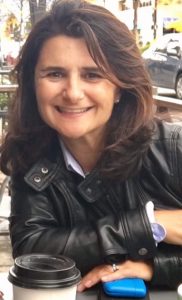 Dr. Nancy Clark is an assistant professor at the Faculty of Human and Social Development, School of Nursing at the University of Victoria, British Columbia. She is a PAN Affiliated Researcher and is the Co-Principal Investigator on the Making It Work Study
Dr. Nancy Clark is an assistant professor at the Faculty of Human and Social Development, School of Nursing at the University of Victoria, British Columbia. She is a PAN Affiliated Researcher and is the Co-Principal Investigator on the Making It Work Study
Nancy is an alumna of the Liu Institute for Global Issues at UBC and Intersections in Mental Health and Addiction Research Training with Canadian Institute of Health Research. Nancy’s research is informed by social justice, intersectionality and equity-oriented health policy. Critical ethnographic and community based participatory action research methods are used in her work with structurally vulnerable groups, including groups affected by displacement and intersections of mental health conditions including HIV.
What first piqued your interest in the HIV/ hepatitis C sector?
My community work began in the mid 80s as a community mental health nurse working with individuals and groups living with HIV, hepatitis C, ill mental health and substance use in Vancouver’s DTES. This work with communities shaped how I approach community based research and learning with and from service organizations and lived realities of this population group. In particular, I learned about social determinants of mental health and the structural vulnerabilities that intersect with these chronic care conditions such as gender, sexuality, class, race/ethnicity status.
What role do you think HIV and hepatitis C research plays in the “real world”?
There have been significant advances made across medical research to improve the health and wellbeing of people living with HIV and hepatitis C. More treatment options are available and individuals and groups are living longer. However, root causes of these conditions across diverse communities are still not well understood. In addition, it is important to better understand how community based service organizations and mainstream health care services collaborate to integrate and support population groups with various intersecting vulnerabilities and social identities. For example, culturally safe care practices have been systemically implemented within health care authorities and some community organizations but less is known about how cultural safety is truly implemented to improve health and wellbeing and mitigate harms.
How do you engage the community in your work?
My approach in working with community is to continually develop meaningful engagement through trust, mutual learning and shared values of health equity and social justice and advocacy. I continue to learn with and from diverse communities such as newcomer groups in Canada and Indigenous groups and organizations about some of the challenges and successes for promoting health and wellbeing. I consider myself a community engaged scholar who tries to bring real world experiences and realities to the academic setting to inspire and promote inclusion and social action.
If you had unlimited funds, which areas of research would you invest in?
If I had unlimited funds, I would invest in research that addresses the social determinants of mental health, trauma and cultural understandings and interventions that improve health and health systems. This includes addressing stigma and unconscious bias that may arise across health systems and organizations that unwittingly create barriers to equitable access to services and support systems for individuals and groups living with HIV/hepatitis C, ill mental health and problematic substance use. We need better models of integration that meet the needs of this population group.
If you were able to choose, what is the natural talent you’d like to be gifted with?
That is a hard question! I would say community development and advocacy. I would like to be able to use advocacy work to influence policy and practice related to integrated mental health care and support for groups that live with multiple chronic care conditions such as HIV, and ways to address these complexities. I have experience in qualitative research and critical ethnographic methods of research with under served communities, and bring my expertise to working on community based research initiatives and social action research which illuminates the factors which shape inequities in health.
